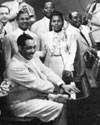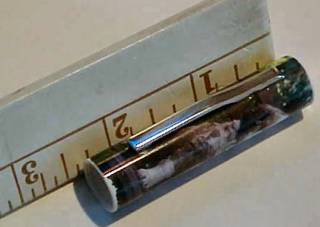While I was attending college I somehow, managed to convince some people that I had a great depth of knowledge in the field of English Literature. Nothing could be further from fact. I didn’t then and today I still don’t, understand the imagery and references in most poems of early England. However, I did learn there are people who contend they do – many, many people. A great number of these people have written books to demonstrate to others that they do know. These books are in abundance in most libraries and my college had many. Hence, with some reading it was possible for me to appear to have knowledge that, in reality, I did not have.

My very first challenge was when the assignment called for the reading of
The Rime of the Ancient Mariner written by
Samuel Taylor Coleridge around 1800.
Now to begin with, the word “rime” meant, “rhyme” back in those days. Like in "Mary Had a Little Lamb". I didn’t know that but they people who wrote those books knew that.
It starts out with:
It is an ancient Mariner
And he stoppeth one of three.
'By thy long beard and glittering eye
Now wherefore stopp'st thou me?
Now as any fool can see, this says there’s these three guys and this old sailor stops one and that guy says, “Wadda ya stopping me for?”
So in each class I would just repeat what I had read in these books even though it still didn’t make any sense to me. It seemed to work.

Then one day our assignment was to read a particular poem by
Robert Browning called
“How They Brought the Good News from Ghent to Aix”.
According to what I read, Ghent was place in Belgium where some kind of conflict had taken place. Three guys had jumped on their horses to attempt to ride all the way to Aix, which is in France, to carry the news there had been a victory. It was a long trip and only one horse made it and even he died in the town square. The rider gave his horse a sip of his wine but it didn’t help. The horse died.
The critics I read seemed to think this was as simple poem about horses that Browning had written just for the fun of it. So, that’s what I thought too. But it wasn’t that simple.
At lunch, just before the English Lit class, I sat at a table with other class members. They happened to all be girls in the 19-year old range. One blonde girl is memorable because she said everything twice. No one knew why.
As I got to the table she said, “You’re good at this. You’re good at this.
Did you read the poem? Did you read the poem?”
I said I had read the poem and didn’t mention the library work. I never did.
“What did it mean? What did it mean?”
For some reason I really can’t explain, I gave a playful answer. I told her, (well, actually I told all of them) “I saw this as a poem about man, racing though life searching for God and then, the wine at the end, that was his attaining it.”
“Oh, thank you. Oh, thank you.”
We went to class and there was a quiz. We were asked to write our opinion of that poem. I wrote something that started with, “Having been brought up on a farm, I know how devoted a horse can become to his master.” Of course, I wasn’t raised on a farm. I only knew what a farm looked like from pictures.
I thought nothing more about it until the next class when our professor told us the test results.
She said, “I know I’ve told you that whatever you read into a poem is what it is, but in this case so many of you thought the horse represented man, racing towards his immortal goal. I didn’t see it that way at all.”
Then, actually using my name, she said that she tended to think along the same lines as I did and it was simple story about a horse. She felt it was nothing more than that.
From behind I heard a soft voice say, “You son-of-a-bitch. You son-of-a-bitch.”














